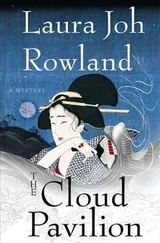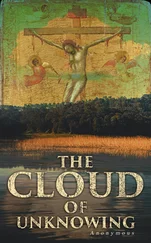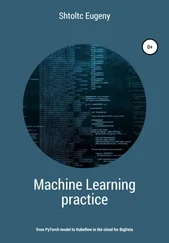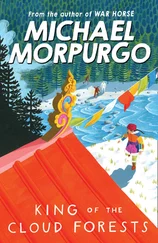Matt Richtel - The Cloud
Здесь есть возможность читать онлайн «Matt Richtel - The Cloud» весь текст электронной книги совершенно бесплатно (целиком полную версию без сокращений). В некоторых случаях можно слушать аудио, скачать через торрент в формате fb2 и присутствует краткое содержание. Жанр: Триллер, на английском языке. Описание произведения, (предисловие) а так же отзывы посетителей доступны на портале библиотеки ЛибКат.
- Название:The Cloud
- Автор:
- Жанр:
- Год:неизвестен
- ISBN:нет данных
- Рейтинг книги:3 / 5. Голосов: 1
-
Избранное:Добавить в избранное
- Отзывы:
-
Ваша оценка:
- 60
- 1
- 2
- 3
- 4
- 5
The Cloud: краткое содержание, описание и аннотация
Предлагаем к чтению аннотацию, описание, краткое содержание или предисловие (зависит от того, что написал сам автор книги «The Cloud»). Если вы не нашли необходимую информацию о книге — напишите в комментариях, мы постараемся отыскать её.
The Cloud — читать онлайн бесплатно полную книгу (весь текст) целиком
Ниже представлен текст книги, разбитый по страницам. Система сохранения места последней прочитанной страницы, позволяет с удобством читать онлайн бесплатно книгу «The Cloud», без необходимости каждый раз заново искать на чём Вы остановились. Поставьте закладку, и сможете в любой момент перейти на страницу, на которой закончили чтение.
Интервал:
Закладка:
“You wanted to be able to see where she died.” I whisper it. I’m wondering: Is Leviathan some kind of sociopath, a serial killer who has created a view to his kills, a virtual collector with a window through which to ogle his conquests?
But then, in an instant, something else replaces that thought.
“You didn’t mean for her to die.”
“It has crushed me, Nathaniel. Destroyed me.” It seems his voice might break but he clears his throat. He tells me that he introduced a new generation of multitasking software to the kids, like little Kathryn, who came to free day care and after-school programs at Leviathan Ventures. He jerry-rigged handheld devices, nothing fancy and commercial like the current Juggler. But the devices were years ahead of their time, combining crisp video and motion detection to allow the kids to move from one task to the next. The kids were entranced. He thought he was preparing them for the future.
“I used to sit in class and marvel at their immersion. It was like watching baby kittens bat balls around-endlessly excited and with preternatural dexterity. I could see their reaction times increasing. But they were moving data, refining their multitasking, becoming more competitive, not less.”
“So it worked.”
“In one respect. They did show increased visual acuity. They could pick up amid the clutter of images the ones they needed to focus on. At least that’s what I could discern through my unscientific observations. And research has since backed me up on that.” He pauses. “Then it turned dark.”
“When Kathryn got hit by the car.”
“Months before, the kids started getting agitated. They hated disconnecting. One kid hit another. A few parents started complaining that on the days after, their kids came acting like they were back in the terrible twos-impulsive, unwilling to take direction, highly susceptible to being startled.”
He says the teachers looked at whether they were serving too much sugar, providing insufficient rest time. The complaints never reached Leviathan. But after Kathryn’s death, he started asking questions and surmised that something wasn’t right.
“I buried the technology.”
“You knew it was problematic.”
“I suspected.”
“More than suspected. You built a bunch of charter schools. You became a firebrand for improving education. You. .” I pause, thinking it through; Leviathan’s schools limited the use of technology in instruction. I look at him. “But the technology resurrected.”
He nods grimly. “That’s what I needed you for.”
“Me?”
A sound comes from the direction of the stairs. I look up to see Leviathan’s wife step into the room. She stops, and looks at her husband, stricken, as if suspended mid-step, a horrified puppet.
“Please no.”
“My fair lady.”
“A gun.”
“It’s over, sweetheart.”
“You don’t have to do this, Andrew.”
“I’ve already done it.”
58
She blinks, and she suddenly smiles. She walks toward me. She extends her arms, not like greeting an old friend but more formal, like one politician about to embrace another onstage. It’s fake but she’s so magnetic.
“He’s not gotten much sleep. He’s rambling. It doesn’t happen often but when it does it can turn the world’s smartest man into. .”
“Sit,” he says to her.
She looks at him, unaccustomed to this tone, then turns to me, plaintive, she shuffles to the love seat.
“I hired Alan Parsons,” he says to me. “I asked him to contact you, discreetly, and”-he mulls over the word-“seduce you into looking into the Juggler.”
“By shoving me into a train?”
He shakes his head and shrugs.
“I don’t get into the details. I just knew you were the right guy.”
“Why me?”
“You’re like him,” his wife says.
“Not in any way I can imagine.” Not rich, famous, world changing, married to a beautiful, devoted wife.
He holds up his hand, asking his wife to refrain. “You are very talented. But your talent is outweighed by your curiosity. You overextend yourself.”
Andrew says that he discovered my work when his team went looking for a journalist to award with his annual magazine prize. As he looked into my work, he became convinced that I had done a good job questioning Silicon Valley’s implicit assumption about the inherent good of all technological progress.
“Okay, but why now? The Juggler’s been on target for months, years. You’ve known about it.”
He points out the window.
“Don’t do this to yourself,” his wife says.
I look where he’s pointing. To our right, over the rolling hills in the direction of a concentration of residential lights.
“Los Altos High School. Another alumni of our after-school program killed himself.”
The kid who jumped in front of a train. Just a few months ago. Anthony Gearson.
“But that doesn’t have to do with your work.” His wife stands.
“Wrong! Don’t let me lie to myself. I love you. But don’t let me lie anymore.”
She’s frozen again, her eyes half closed; she can’t watch anymore.
He turns to me. “It’s true that I didn’t resurrect the Juggler technology.” He explains that, in fact, he thought it was long buried. But he realized that his old partner, Gils, had revived it and sold it to a manufacturer with the backing of the Chinese government. Gils, he tells me, never knew about the negative neurological implications. On the other hand, Leviathan says, he had admonished Gils more than a decade ago that the technology didn’t work and that it should not be sold under any circumstances. To sell it, Leviathan told Gils, would be unethical.
His wife interjects. “But you have to understand. Gils always lived in my husband’s shadow. It’s the same old story-Jobs and Wozniak at Apple, Gates and Paul Allen, to a lesser extent, at Microsoft-two co-founders at these companies, one is known as the genius and the other guy counts beans.”
There’s a moment of silence. She adds: “This was Gils’s chance to put his stamp on the Next Big Thing, absent my genius husband.”
He explains that Gils worked out deals to have the technology tested in a handful of day care and learning centers, after-school programs, and juvenile detention centers.
“It’s up to industry! We have to police ourselves,” he exclaims. He sees that neither I nor his wife understand his outburst. He explains that the old government social safety nets and regulations can’t possibly keep up with technology and the deleterious impacts on the margins of technology. It would take the equivalent of the Food and Drug Administration, he says, to create policies around the potential downsides of mass consumption of technology.
“Technology is like food. We need it to survive. But some technology is like brussels sprouts and some is like Twinkies. Some is arsenic.” He bows his head. “We’ve swallowed technology whole.”
“The industry is to blame?”
“Society is broke. We privatize our schools and our prisons. We’ve abdicated to industry. The corporation, writ large, is the future. It’s got to take responsibility-to act responsibly. But how can we ask it to be other than what it is-to ask ourselves to be other than what we are?”
“Industry?”
He shakes his head, defeated. “There are no bad actors here. No malice. Just the usual human failings.”
“Such as?”
“Greed, self-deception, envy.” His wife again.
“What about Alan Parsons? He tried to bribe you. That’s not malice?”
He nods a concession. “And he got his comeuppance through a heart attack. Fortune turned against him.”
“Pure accident? Natural causes?”
Читать дальшеИнтервал:
Закладка:
Похожие книги на «The Cloud»
Представляем Вашему вниманию похожие книги на «The Cloud» списком для выбора. Мы отобрали схожую по названию и смыслу литературу в надежде предоставить читателям больше вариантов отыскать новые, интересные, ещё непрочитанные произведения.
Обсуждение, отзывы о книге «The Cloud» и просто собственные мнения читателей. Оставьте ваши комментарии, напишите, что Вы думаете о произведении, его смысле или главных героях. Укажите что конкретно понравилось, а что нет, и почему Вы так считаете.












